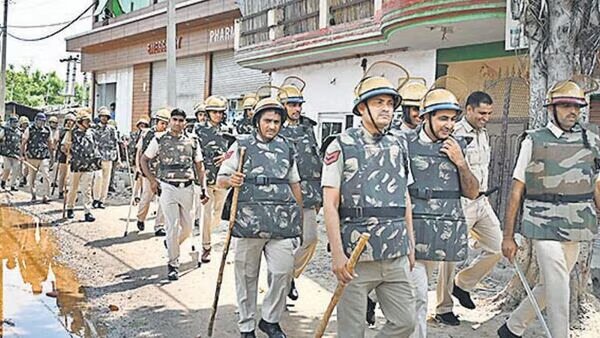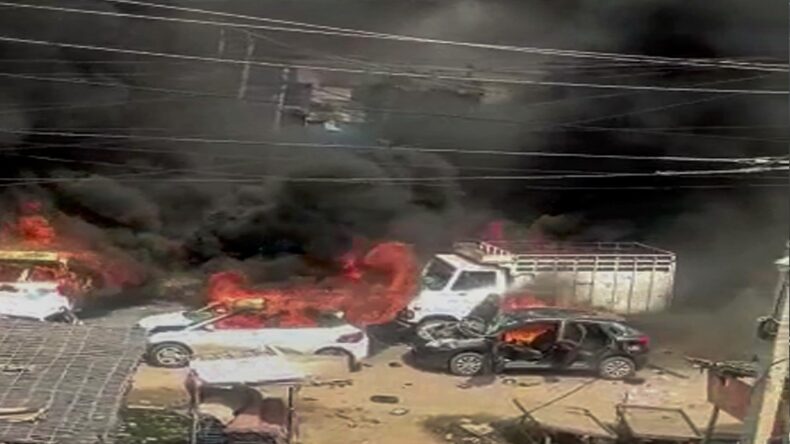The Indian state of Haryana is grappling with rising violence and unrest in the Nuh district. In response to the escalating situation, the Haryana government has called on the central government to deploy more paramilitary forces. Clashes in Nuh have resulted in many deaths, destroyed property and created an atmosphere of fear and tension.
Nuh, a district to the south of Haryana, has been facing social and community tensions for some time. These tensions stem from a variety of factors, including economic disparities, political disparities, and religious differences. The region has a large Muslim population that has faced socioeconomic challenges, leading to feelings of alienation and frustration. This has created fertile ground for community hostility and violence, which periodically erupt into conflict between different communities.
In recent months, Nuh has seen a spate of violence that has raised concerns about the safety and security of its residents. Riots, arson attacks and attacks on people and property have become more frequent, prompting the state government to quickly intervene to restore normalcy.

As the situation in Nuh worsened, the government of Haryana took various measures to control the situation. Local law enforcement was deployed to stop the violence and maintain order. However, given the scale and intensity of the unrest, these forces proved inadequate to manage the situation effectively. Therefore, the state government has seriously asked the central government to add paramilitary forces to help restore peace and stability to the troubled county.
The deployment of paramilitary forces is often seen as a last resort in the face of internal security issues beyond the ability of local law enforcement. The force consists of highly trained personnel with specialized skills in managing unrest and crowd control. Their presence can act as a deterrent to potential troublemakers and help restore a sense of security to affected populations.
However, the decision to call for paramilitary forces must be made wisely. Critics say the use of paramilitary forces in domestic situations has the potential to increase tensions and lead to human rights violations. It is therefore essential for state governments to manage these deployments sensitively and to ensure that the actions of the forces are within the bounds of the law.
While the deployment of paramilitary forces may have a short-term impact in suppressing violence, a long-term solution requires addressing the root causes of the unrest. Haryana government must focus on reconciliation and community cohesion efforts to bridge the gap between different communities in Nuh.
The escalating violence in Nuh, Haryana highlights the challenges facing India’s diverse society and the need for proactive measures to address community tensions. The state government’s call for the central government to add paramilitary forces reflects the gravity of the situation and the urgency to restore law and order.
While the deployment of paramilitary forces may provide temporary relief, the government must not ignore the deeper problems fuelling the unrest. Community engagement, economic development, and interreligious dialogue are essential elements of a holistic approach that addresses root causes and promotes lasting peace.
Authorities must exercise caution in handling the situation, ensuring that citizens’ rights are protected and that the use of force is appropriate and responsible. Only through a multifaceted and empathetic approach can Nuh County and other regions facing similar challenges move toward a future of coexistence and prosperity.












